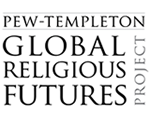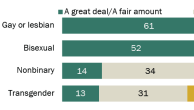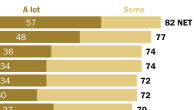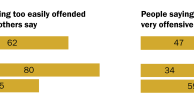In December 2009, the Pew Research Center’s Forum on Religion & Public Life published its first report analyzing the extent to which governments and societies around the world impinge on religious beliefs and practices. The report found that about 70% of the world’s population was living in countries where governments imposed high restrictions on religion or where there were high levels of religious hostilities in society.
As part of the original study, the Pew Forum developed two indexes – a Government Restrictions Index and a Social Hostilities Index – that were used to rate 198 countries and self-governing territories. Using the original study as a baseline, we are now able to assess how government restrictions and social hostilities are changing globally. The new study finds that more than 2.2 billion people – about a third of the world’s population – live in countries where government restrictions or social hostilities involving religion are increasing. About 1% live in countries where government restrictions or social hostilities are decreasing.
Moreover, there is an intriguing pattern in the changes: The substantial increases tend to be in countries where restrictions and hostilities are already high, while the decreases tend to be in countries where restrictions and hostilities are already low. This pattern suggests that a gradual polarization could be taking place, with restrictive countries growing even more so. Whether this is a long-term trend or a short-term phenomenon is not yet clear. But our next round of coding (categorizing and counting) published data on religious restrictions is already under way, and we intend to produce periodic reports tracking these trends over time.
As we noted in the first report, it is important to bear in mind some limitations when reading this study. The indexes of government restrictions and social hostilities are designed to measure obstacles to religious expression and practice. As a result, the report focuses on the constraints on religion in each country. It does not look at the other side of the coin: the amount of religious diversity and activity in particular countries. The study also does not attempt to determine whether particular restrictions are justified or unjustified, nor does it attempt to analyze the many factors – historical, demographic, cultural, religious, economic and political – that might explain why restrictions have arisen. It simply seeks to measure the restrictions that exist in a quantifiable, transparent and reproducible way, based on published reports from numerous governmental and nongovernmental organizations.
One final note: As was the case in the baseline report, North Korea is not included on either of the indexes. The primary sources used in the study indicate that North Korea’s government is among the most repressive in the world, including toward religion. But because independent observers lack regular access to the country, the sources are unable to provide the kind of specific, timely information that formed the basis of this analysis.

The Pew Forum’s work on global restrictions on religion is part of the Pew-Templeton Global Religious Futures project, which analyzes religious change and its impact on societies around the world. Previous reports produced under this initiative, funded by The Pew Charitable Trusts and the John Templeton Foundation, include The Future of the Global Muslim Population: Projections for 2010-2030 (January 2011), a comprehensive demographic study that estimates the number of Muslims around the world in 2010 and projects the growth of Muslim populations from 2010 to 2030;Tolerance and Tension: Islam and Christianity inSub-Saharan Africa (April 2010), which is based on a major public opinion survey conducted in 19 African countries; and the Global Survey of Evangelical Protestant Leaders (June 2011), which is based on a survey of nearly 2,200 evangelical leaders who were invited to attend the Third Lausanne Congress on World Evangelization, held in October 2010 in Cape Town, South Africa.
The principal researcher for this report was Brian J. Grim, a senior researcher and director of cross-national data at the Pew Forum. He was assisted by Peter Henne, a Pew Forum research analyst and doctoral candidate in government at Georgetown University, and by several Georgetown University graduate and undergraduate students who participated in the coding. For helping to recruit these very capable students, we are grateful to Georgetown’s Berkley Center for Religion, Peace, and World Affairs and its director, Professor Thomas Banchoff
Luis Lugo, Director Alan Cooperman, Associate Director for Research




